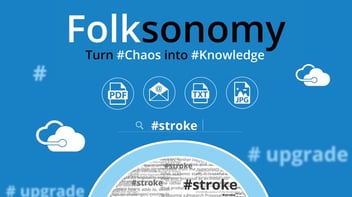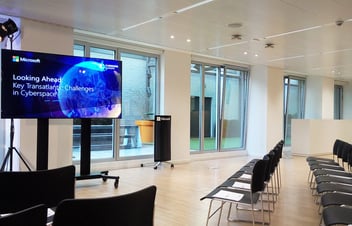ig Data is a gigantic area of technology which can be shaped and optimized into different solutions for almost any necessity.
Big Data is a gigantic area of technology which can be shaped and optimized into different solutions for almost any necessity. The biggest impediment to what scope of Big Data projects you can do is the limits of your very own imagination. Data is created at every move you take and don't take, voluntarily or involuntarily, and with the continuing advancements in data warehousing and data mining, the possibilities of Big Data projects just keeps widening and widening.
Big Data can be used to get a better understanding of what happened before, see much more clearly what is happening now even in real-time, and can even be used to predict the future with the right algorithms in place. Armed with the technology of today, people are making Big Data projects work in some fascinating ways. Here are some of the most interesting Big Data projects happening around the world today.
Microsoft Connected Vehicle Platform
Microsoft announced this week that it is partnering up with Nissan to create some of the most intelligent cars to ever hit our roads. The new Nissan vehicles will be Smart Cars powered with the tech giant's Cortana Intelligence Suite, but don't confuse this with a 'Windows Car' or anything like that. The company's press release makes it clear that this announcement was not for an operating system built for cars, nor a connected car in its own right, but rather a platform on which others can build. Microsoft will be providing the software and the cloud platform from which everything begins, and the car manufacturers will be implementing it into their systems.
The platform is aimed at five key priorities, gathered from research taken from Microsoft Partners: predictive maintenance, improved in-car productivity, advanced navigation, customer insights and help building autonomous driving capabilities. The product will be an agile platform powering next-gen connected vehicles. At last week's Nissan CES keynote it was announced that, through their partnership with Microsoft through the Renault-Nissan Alliance, they will be working hand-in-hand with the tech corporation to create the next step of intelligent vehicles.
Big Data To Help Save The Animals
The world is currently undergoing a sixth mass extinction event, where huge percentages of the planet's species are disappearing at alarming rates. Unlike the previous five that we know about in the earth's geological history, this one is being caused solely by one species inhabiting the planet - humans. Some of the rarest and most beautiful animals in the world are hunted despite their in-danger and protected statuses.
A team of scientists from the Snow Leopard Trust and National Conservation Foundation are putting Big Data to use to try to target when, where, and how illegal hunters are going to try poach wild tigers in India. The Indian wildlife is home to the majority of the planet's wild tiger population, and their bones sell for high prices because of their use in a lot of Chinese medicines. Incredible amounts of data is being analyzed to try to preemptively intercept poachers before they can reach their target.
Big Data projects are also being used to combat illegal, unreported, and unregulated fishing. Mass fishing has devastating consequences on fish populations when unreported and unregulated, so a similar effort to fight this illegal activity is being undertaken by Oceana, a marine advocacy group, who are being backed by Google and SkyTruth.
Lessons About Love: From Big Data
Data can be used to quantify and qualify almost anything, especially in the modern era with this most cutting-edge technology available to us. But one area of life that data has difficulty finding a place in is one of the most important: Love. It is impossible to write down any form of tangible evidence or data why love occurs, or even how or when it may. That said, with a large enough data set, there are still lessons that we can learn from Big Data about the heart.
One data scientist wrote this compelling article about two lessons she took from analyzing all the available data she had from her own relationship. After moving to another country, thus making her relationship a long-distance one, she took to her database of emails to reminisce whenever she missed her boyfriend, which in turn took her to analyzing that data to see if there were any quantifiable lessons she could deduct from her database.
Malaria: The First Disease Wiped Out By Mobile Phones
“Lack of information and data is why [malaria] is among one of the deadliest diseases on the planet,” according to Martin Edlund, CEO of the non-profit organisation Malaria No More. Up to 400,000 children die annually at the hands of the disease, and Big Data is being employed to put a stop to it. Google have even teamed up with the organization to help fight the disease.
There are roughly one billion mobile phone subscriptions across the continent of Africa, making mobile phones one of the most powerful tools we have in this fight. Public health researchers have a database of roughly one billion people to communicate with, one billion potential sources of raw data to be collected that can be used to put an end to this devastating disease. Google have allocated a $600,000 grant to kickstart a raw data mining project in Nigeria. This project has the potential to become one of the most important Big Data projects the world has ever seen.
Big Data To Prove We're Optimistic Creatures
It is an age-old question; are humans inherently good or inherently bad? Or inherently anything at all? It was a question that can have many varying and opposing theories and one that is extremely difficult to answer, but Big Data may have gone one little step towards giving hope to us all by proving, through our use of language, how humans are positive and optimistic creatures.
A new study has found that humans' use of language and words show a deep positivity bias. The study was made on an evaluation of 100,000 words spread across 24 corpora in 10 languages, with one of those corpora being Twitter, offering over a hundred billion individual pieces of data (tweets) to be analyzed. Not only was it found that human natural use of language showed a positivity bias, but this was also independent of word use.


